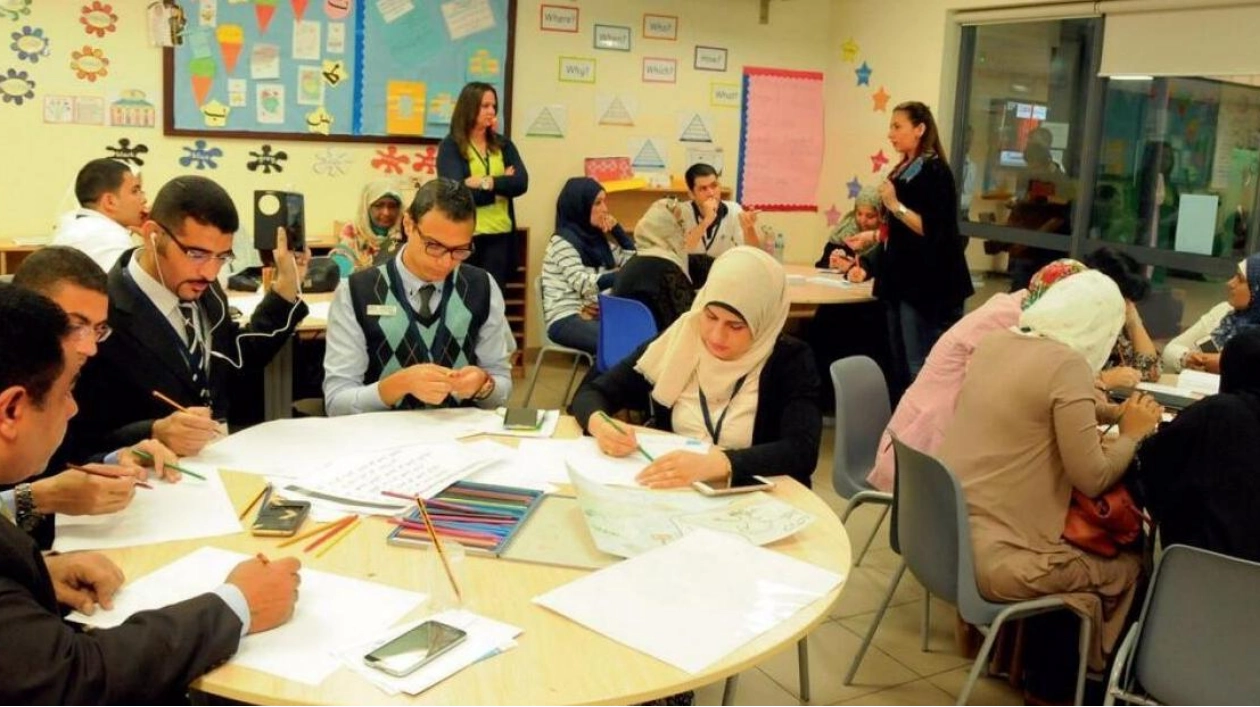Veteran educators in Dubai have emphasized that the introduction of the Golden Visa for teachers will not only bolster stability within the education sector but also elevate the status of the profession, aligning it with other esteemed occupations in the country.
Sheikh Hamdan bin Mohammed bin Rashid Al Maktoum, the Crown Prince of Dubai, Deputy Prime Minister, Minister of Defence, and Chairman of the Dubai Executive Council, announced on Saturday that Golden Visas will be granted to educators who have made 'outstanding contributions' to Dubai’s private education sector. In response, the Knowledge and Human Development Authority (KHDA) confirmed that the Golden Visas will be extended to educators working in private schools, nurseries, and universities across Dubai. Applications for the Golden Visa for exceptional educators will commence on October 15, 2024.
Khaleej Times spoke with several seasoned educators to gauge the potential impact of this initiative. Louis La Grange, an educator in Dubai for over two decades, expressed his enthusiasm, stating, “My initial reaction was ‘wow! This is absolutely amazing’. It will bring a great sense of recognition. Teachers invest a lot…in terms of time, dedication, and passion that is put into teaching an international cohort of students. If given a chance, I would definitely want to apply.” He noted that over the years, the challenges and expectations from both the community and the government have grown, as Dubai strives to be one of the world’s best places for quality education. “The Golden Visa for teachers represents not just the benefits but is also a recognition of educators for their contributions. As teachers, we significantly influence young minds. A little bit of yourself goes with your students.” La Grange added that this initiative will elevate the status of the profession and place it on equal footing with other professions in Dubai.
For South African teacher Louis La Grange, the opportunity would also allow him to remain in the country until his eight-year-old daughter completes her schooling. “If I can live and work in Dubai for another ten years, I can ensure that she finishes her primary and secondary education in a stable environment before heading off to university. This initiative provides stability, direction, motivation, and purpose. It makes you feel that your efforts are acknowledged.” He also highlighted that while purchasing property in Dubai can lead to obtaining a golden visa, teachers often don’t fall within the income bracket that allows for property investments worth millions. “For me, safety, security, and stability are key priorities, which is why I want to continue living and working in Dubai,” La Grange added.
Jordanian-Palestinian educator Sajida Al Bashir, who taught Islamic Education, Arabic, and Social Studies at various schools in Dubai over her 25-year teaching career, highlighted another perspective on how the Golden Visa could be beneficial beyond just supporting teachers. She said, “Staff retention has become a significant issue lately. Many teachers choose to leave their schools as soon as they find a better opportunity or return to their home countries. This trend has been particularly evident among male teachers in recent years. Therefore, this initiative provides a valuable opportunity for teachers to remain in their schools and in the country, allowing them to celebrate their students’ successes.” Bashir, who now works as a Supervisor for Quality and Assessment at the Ras Al Khaimah Department of Knowledge, added: “Having stable educational systems in the country will lead to improved student outcomes. As a regulator now, I frequently meet with principals who express concerns about the time and money spent on training teachers. The moment these educators are recognised as ‘good’ or ‘very good,’ they often leave. We must also consider the perspectives of school owners, founders, and management, who strive for stability and loyalty for the benefit of their schools and communities.”
Bashir emphasized that when teachers know that their contributions are appreciated and their positions secure, they’re more likely to stay in the UAE. “New teachers these days need assurance that the educational sector also offers an opportunity for a good life. It’s also a secure profession to pursue in one’s life and one doesn’t have to constantly worry about their visa status. This initiative will draw a lot of good people who wish to join this profession that will in turn positively benefit the country.”
Meanwhile, the eligibility criteria for the Golden Visa include demonstrating outstanding academic achievements and innovative contributions to education, proven success in enhancing educational quality at institutions, creating a positive impact with recognition from the broader educational community, and making significant contributions to improving student outcomes. Long-serving teachers in other emirates are appealing for a similar move as Dubai.
Palestinian teacher May Hamdi said, “Stability gives people a sense of security, allowing families to plan for the long term. I’ve witnessed situations where colleagues’ husbands retire or lose their jobs due to company closures or the passing of the family's primary provider, often the husband. In such cases, the female teachers are forced to leave, making it difficult for them to continue their careers. As a result, schools lose valuable educators.” The 65-year-old teacher emphasised that in her four decades of experience, she has seen many families with children in school or university face significant hardships when they lack the necessary visas to stay in the country, causing the entire family to suffer. “Stability provides peace of mind, and educators who have spent over a decade in this country should at least be eligible to apply for long-term residency. I hope this policy extends to other emirates as well,” added the teacher who started her career in 1984 at Abu Dhabi Indian School.






